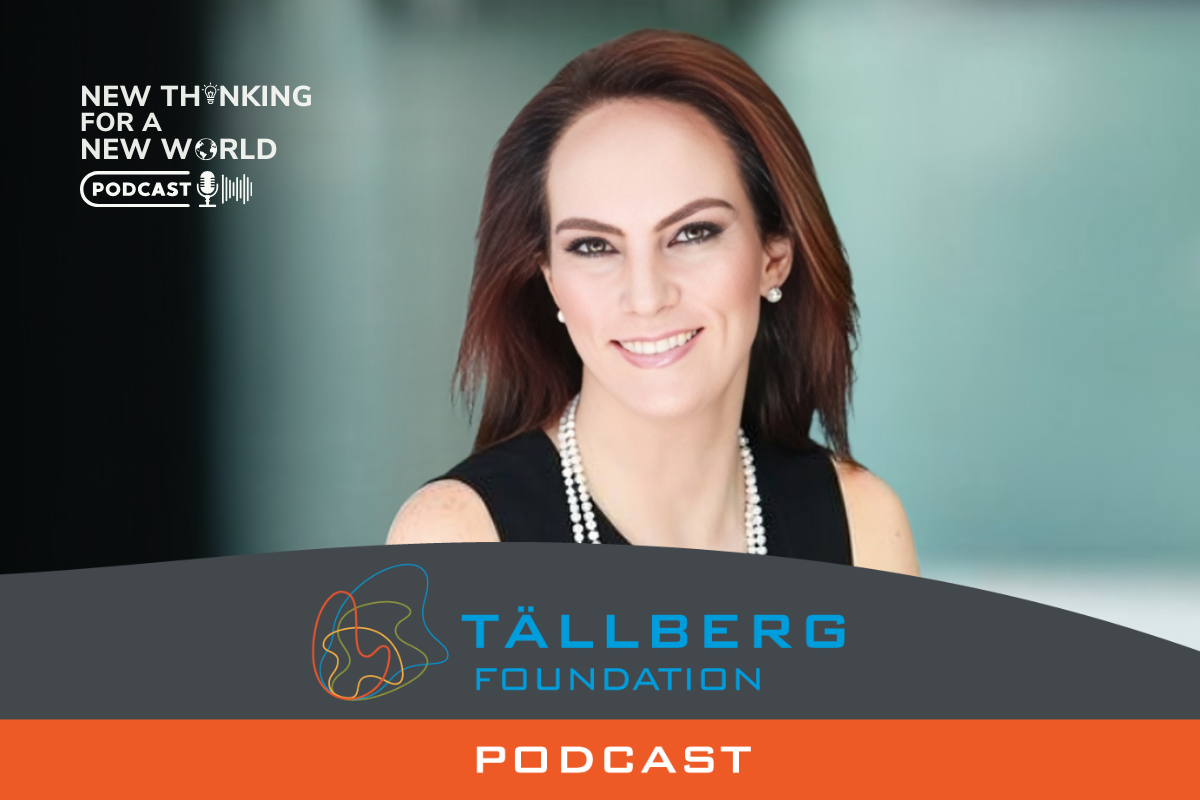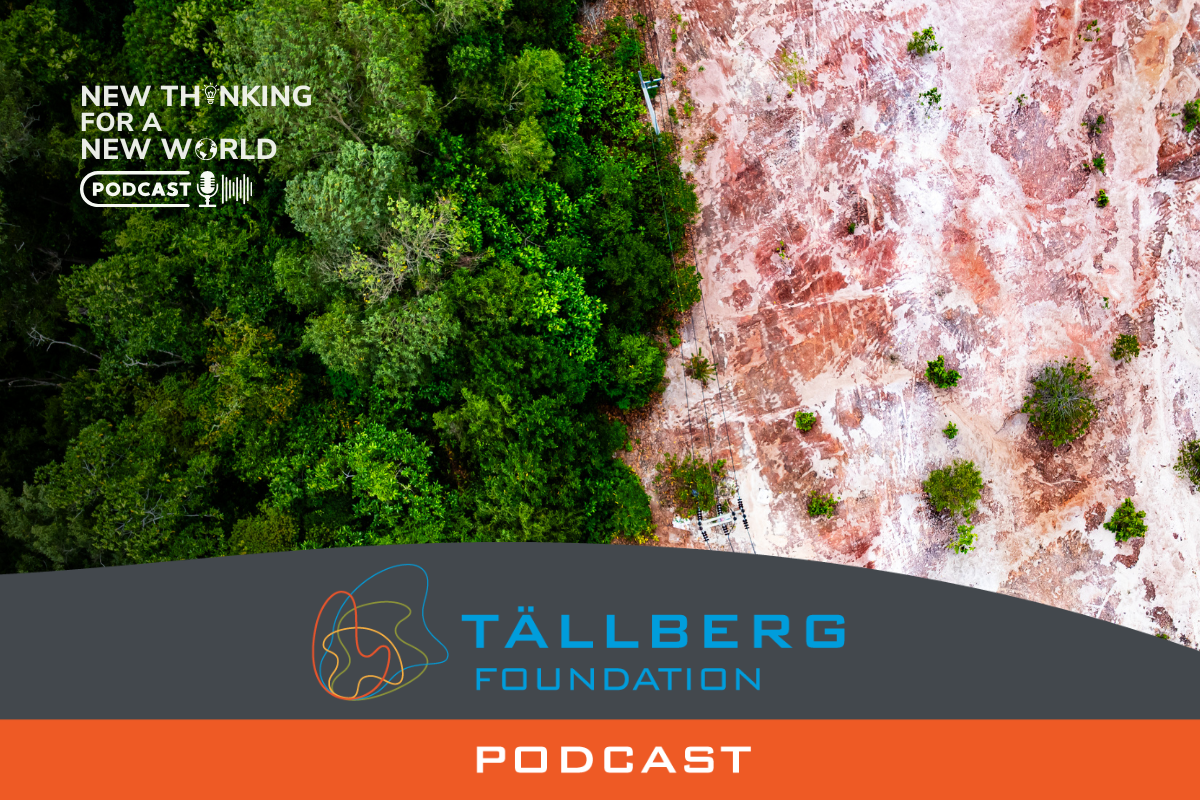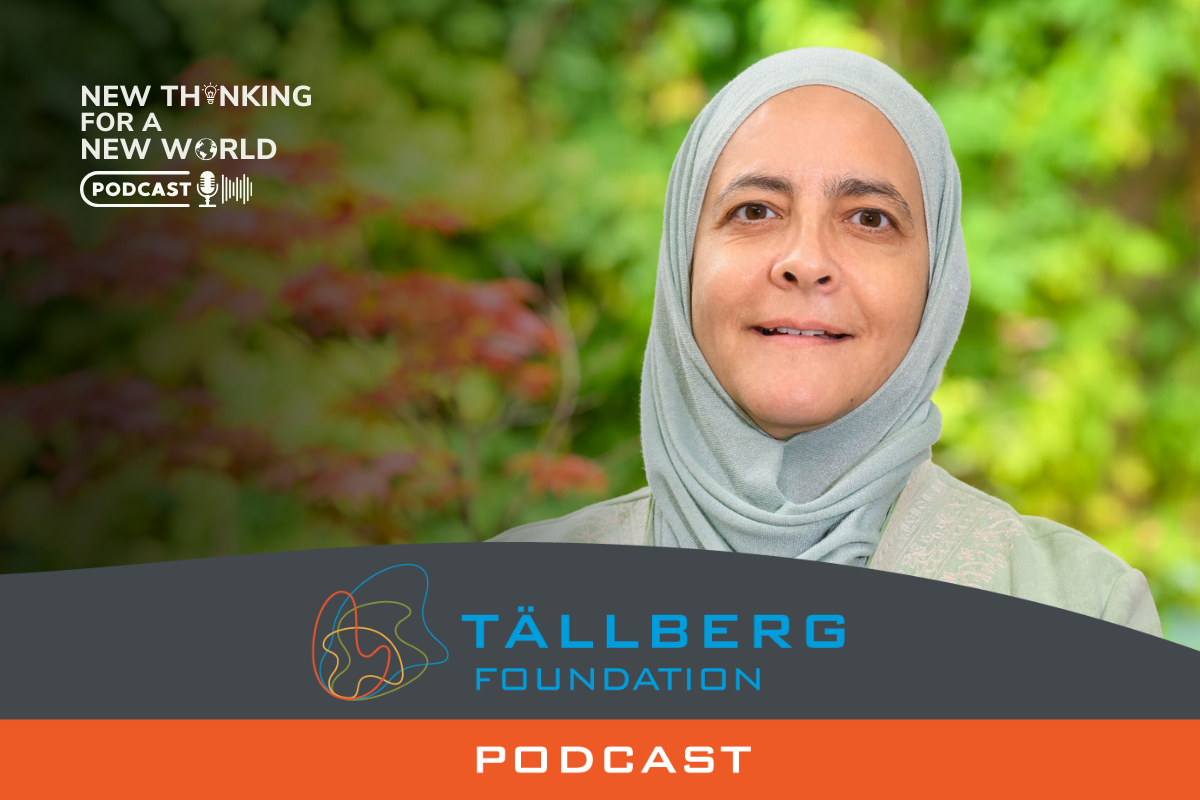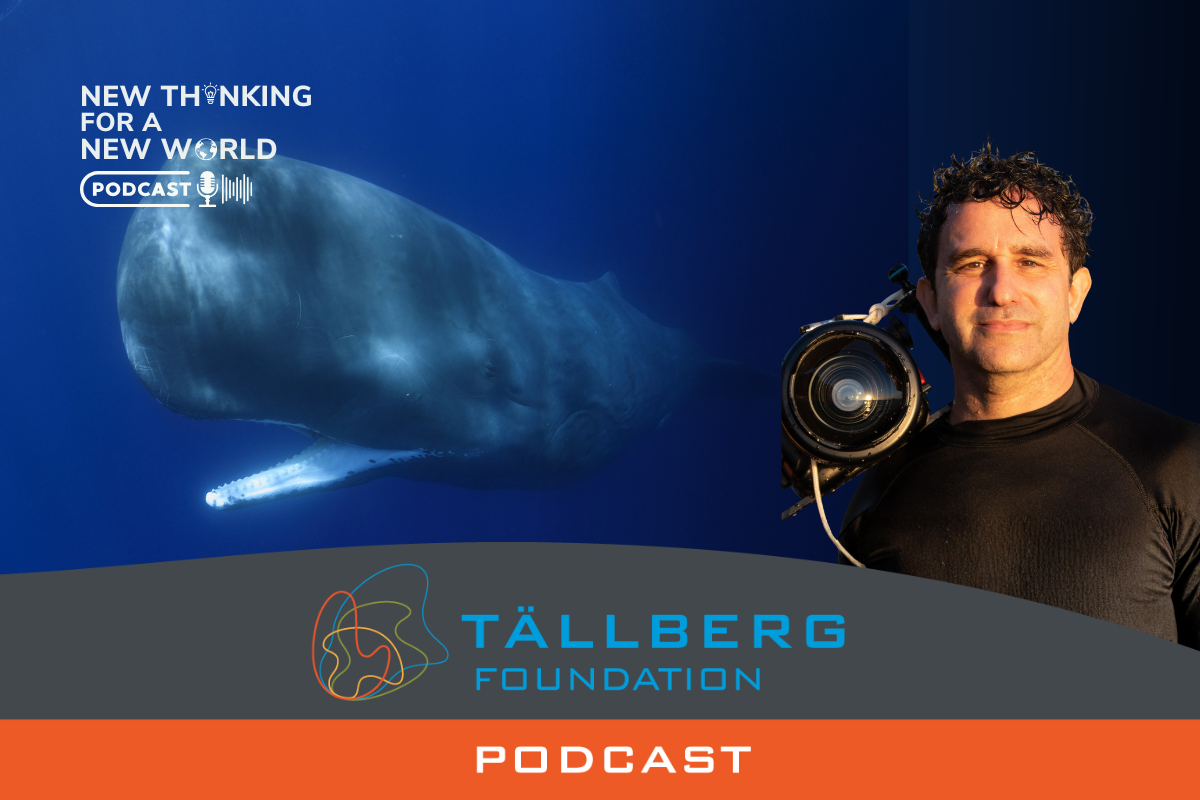Shakespeare wrote in Hamlet, “The play’s the thing, wherein I’ll catch the conscience of the king,” when the troubled Prince stages a play to catch a murderer. The underlying point of the play-in-the-play is that drama is an incredibly powerful force for storytelling and much else.
Fast forward to the 21st century for an amazing example of that Shakespearean wisdom. Two incredibly creative British filmmakers created something called The Trojan Women Project to use drama to help refugees from wars in the Middle East and Ukraine cope with their trauma. The idea is elegant in its simplicity: combine the wisdom and words of Euripides’ play with the tragic lived experiences of people fleeing war and destruction, as therapy for them and as a learning tool for audiences who are offered unique insight into what war is really like.
Charlotte Eagar and William Stirling have worked on this project for more than a decade. The Tällberg Foundation first met them in 2014 when they brought a dozen Syrian refugee cast members to one of our workshops. We witnessed an absolutely amazing performance of The Trojan Women laden with a depth of tragedy that even the greatest actors would be challenged to produce—because for the Syrians, it was their lives, not their lines they were sharing.
Listen as Charlotte and William describe how they tap into the real power of the play, and how it can transform refugees as well as audiences.
***
Find the New Thinking for a New World podcast on a platform of your choice (Apple podcast, Spotify, Google podcast, Youtube, etc.)
ABOUT OUR GUESTS
Charlotte Eagar is an award-winning filmmaker, award-winning former foreign correspondent, novelist and producer. She is currently producing Trojans UK 22-23-24, a projected UK-wide tour of the Trojan Women, through a series of refugee community drama workshops which has been running for 18 months so far. Previously she produced En-scripted, an online digital drama covid project for refugees (2020-21); Trojans (2019) an adaptation of Euripides’ Trojan Women, with a mixed gender cast of Syrian refugees living in Glasgow, which she co-produced at Platform Theatre in Glasgow 2018-19. She co-produced Kaleidoscope, a radio drama writing project with Syrian refugees living in Aberdeen, Glasgow and Heidelberg (2016-17). She also co-produced the 2016 Queens of Syria UK theatre tour with the Young Vic and Developing Artists, and its accompanying documentary The World To Hear (2018). She co-produced Oliver! in Arabic in 2015, Welcome to Zaatari/We Are All Refugees in 2014-15, Syria: The Trojan Women in 2013. She is Executive Producer on Where is Love? (the Oliver! in Arabic documentary – currently in post-production); she was Executive Producer on the multi-award-winning Queens of Syria documentary (2014). Previously, she co-directed and co-wrote the Kenyan mini soap Nothing’s Gonna Change For Me, working with young amateur actors in a Nairobi slum for the NGO Emerging Leaders. She co-produced and co-wrote the multi-award-winning short film Scooterman in 2010. In 2008 she published her novel about the siege of Sarajevo, The Girl in the Film. She was inspired to co-found the Trojan Women Project in 2013 both through her work with refugees in Bosnia, the former Soviet Union and the Middle East as a foreign correspondent and through reading Classics at Oxford. She also has a post-graduate diploma in Islamic and Middle Eastern Studies from Edinburgh University.
William Stirling is an award-winning filmmaker and communications consultant. He is currently co-producing and co-directing Trojans UK 22-23-24-25. He co-directed Trojans UK 23 at the Chelsea Theatre in 2024 and 2023. He co-produced Trojans UK 22 at the Playground Theatre in 2022. He co-produced The Trojans in Glasgow’s Platform Theatre and at the Edinburgh Festival Fringe in 2019. He co-produced Oliver! in Arabic in 2015, Welcome to Zaatari/We Are All Refugees in 2014-15, Syria: The Trojan Women in 2013. He co-produced the Queens of Syria UK theatre tour in 2016, and executive produced its accompanying documentary The World To Hear. He co-directed Where is Love? the documentar of our first ever Arabic adaptation of the musical Oliver! with a junior cast of Syrian refugees, which is being released this year, and the award-winning Queens of Syria documentary (2014). He also co-wrote and co-directed ‘Nothing’s Gonna Change For Me’, and co-produced and co-wrote the award-winning short film ‘Scooterman’. William also co-founded the Trojan Women Project, inspired by his work in Kenya, during the Bosnian War, and studied Classics at Kings College London.




From my perspective—rooted in love as the living essence of all existence—The Trojan Women Project is not just theater; it is sacred medicine. What Charlotte Eagar and William Stirling have done mirrors the healing work of an ancient priesthood: holding space where pain can be alchemized into expression, and trauma into testimony. They have invited the wounded to become storytellers, not to escape the pain, but to name it, feel it, and move it. And in that movement, healing begins.
Even though I couldn’t listen to the full performance—because I am in my own moment of recovery—I still feel the frequency of what was shared. Sometimes, healing isn’t about witnessing everything; it’s about recognizing what’s moving through us as we heal. And here, I want to bring in another powerful force of healing: dance.
Dance, like drama, speaks a language older than words. It is the body’s way of praying, grieving, remembering, and rejoicing all at once. In dance, the body becomes the script, the stage, and the song. When trauma lodges itself into our nervous system, it’s not enough to speak it—we must move it. We must let our bones remember that they are made of rhythm. That we are not just survivors of war or grief or injustice—we are divine instruments of vibration.
Dance is not just healing—it is art in its most primordial, embodied form. Before brush met canvas or pen touched paper, the body was already speaking. Dance is art because it emerges directly from the source without the need for translation. It is the rawest, most immediate expression of spirit made visible.
From my perspective—one that sees all of life as the breath of Infinite Intelligence—dance is the original language of creation. It is the universe in motion through form. Each step, sway, or stillness is a stroke of divine artistry, shaping energy into meaning. While theater may speak to the soul through narrative, dance speaks as the soul itself. It bypasses logic and goes straight to the heart, to the breath, to the vibration beneath all things.
When someone dances, they are not merely performing—they are becoming. Becoming rhythm, emotion, story. It’s not about choreography alone; it’s about the intention that moves the body. In this way, dance is a sacred ritual, a portal, a communion with something greater.
And just like the refugees in The Trojan Women Project transformed their pain into theater, many have and continue to transmute trauma into movement—letting the body say what the voice cannot. Dance, then, becomes not just expression, but exorcism and exaltation. A liberation of the self and a declaration of being.
To dance is to create beauty with your existence.
Even in silence, I dance with them. Even in recovery, I rise with them.